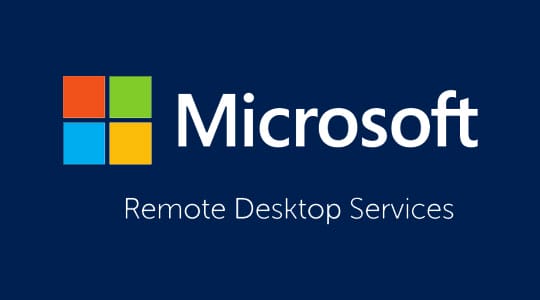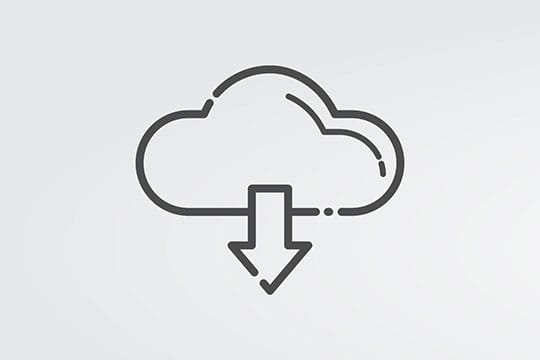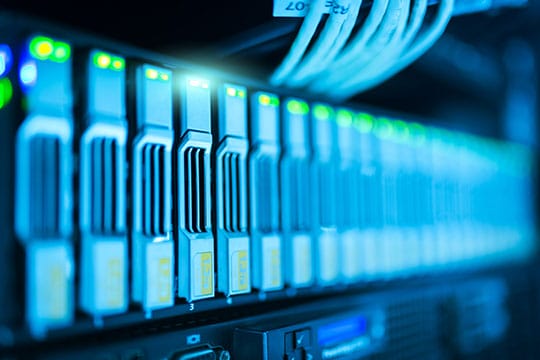There are numerous benefits to working from home for employees and employers have come to recognize this fact. While there are numerous cloud apps that can be utilized when working from home, more often than not they fail to provide the security required. This is when thoughts turn to alternative platforms, which include a VPN, RDS or VDI. So, which is the best to choose for secure remote access? Well, this is something that we are going to discuss right here.
First, let us take a quick look at what a VPN, RDS, and VDI are.
What is a VPN?

A VPN is short for Virtual Private Network (wiki). There are many uses of a VPN, but the use we are interested in here is how it is used to allow devices of users to connect securely to a corporate network from any remote location offering an internet connection.
VPN providers offer a service via a subscription that is paid monthly or yearly with the biggest savings made on one, two and three yearly packages. They all offer software that protects confidential information through military-grade encryption and security via a tunnel once connected to that software. Thanks to a VPN, you can be anonymous online while browsing any website.
The most common devices for working from home will be a computer or laptop but providers also offer apps for a wide range of devices, including smartphones. This means even when on the go, employees can send and receive confidential files providing they are connected to a server offered by the VPN provider.
There is a wide range of VPN providers to choose from.
Recommended for you: Data Encryption: What is Encryption? Types of Encryption and Security!
What is RDS?

RDS stands for Remote Desktop Services and is a part of the remote access solution from Microsoft, being a part of Windows Server 2008 (wiki). This was once called “terminal services”. RDS may be used to boot desktop and application deployment while at the same time allowing the running of just about any OS or application.
Remote Desktop Services control which desktop hosts are accessible, along with who is able to access them.
All employees gain access to the same virtual desktop with the resources of the server being split among employees actually logged into the server at the time. While the RDS works with almost any device, it excels when used on a computer.
What is VDI?

VDI is Virtual Desktop Infrastructure (wiki). As the name might suggest this solution also provides users with access to a virtual desktop.
However, it differs from the RDS in that each of the users is able to benefit from a Windows-based system dedicated to them. This means it can be configured to the preferences of the particular user.
The desktop is delivered via a network to the endpoint at which point the user is able to interact with the Operating System along with applications just as if they were running them on their own device. The endpoint may be a PC or mobile device, such as a tablet or smartphone.
As the data resides on the data center and not the user’s device, there are additional security benefits with a VDI. For example, if the employee is working at home on a laptop and the machine is stolen, data cannot be taken from the laptop simply because it doesn’t reside on the device.
Separate virtual machines are hosted on either multiple or a single server, each having resources that are dedicated. Due to this performance is boosted, along with security.
The main difference between VPN, RDS, and VDI

When considering which is better to choose for secure remote access it helps to know the main difference between VPN, RDS, and VDI.
Server interface
Let’s look at the main differences of the server interface.
RDS offers the shared user experience, although slightly customizable, while VDI offers users a dedicated station with more customization. VDI is also more secure.
With RDS, users are not offered the typical Windows 10 interface, whereas with VDI users can enjoy the Windows 10 interface.
With a VPN a client device is used on such as a PC, Mac or even a smartphone. The app provides a secure connection via a tunnel that sits between the device and the internet with any information passing through that tunnel being encrypted. It is set apart from RDS and VDI in that processing is on the client machine.
Which is better for secure remote access?
So, which method should you choose for secure remote access?
To answer this there are some things you might want to consider, these include:
- Cost.
- Maintenance.
- Performance.
- Security.
- The hardware of the user.

The solution with the highest and lowest costs?
If cost is one of the most important factors, you might want to choose the VPN route to go down.
The VPN solution requires only the minimum of hardware, with an added benefit being that users can generally use their existing devices, computers, smartphones, etc.
The most expensive method is VDI because to use the system an additional layer of software is needed when hosting the system, typically VMware or Citrix.
Which is better for maintenance?
Now on to which solution might be the best in regards to maintenance.
A VPN usually requires the least maintenance once apps are downloaded, installed and up and running. This is because existing user hardware is used.
The RDS setup comes in the middle for maintenance with fewer machines needing patching and maintaining.
The VDI makes use of numerous virtual machines. All of which need support and maintenance, which brings with it a challenge when updating and running patches.
Which is better for performance?
Now let us consider which of the three offers better performance.
The VDI solution usually offers faster user performance thanks to the compartmentalized resources, which each user can adjust. It is also a good choice for those working in the graphics industry where the software needs more processing power.
RDS generally falls in the middle for performance; while a VPN has the user is reliant on client hardware along with server connection speed. VPN relies on encryption, which is superb for security; but not performance as sending huge amounts of data can be slow.

Which is better for security?
VPN offers better security in regards to encryption. The data and information are secure when passing through the tunnel between the user and its destination.
Both RDS and VDI may be set up to restrict data from leaving the corporate network.
Which solution is better for hardware?
User hardware is more important if going down the VPN route for secure remote access. Because, all the processing is undertaken on the user’s devices after installation of apps on Windows PC, Mac, smartphone, etc.
Hardware is of little consideration in regards to VDI or RDS as the processing is on the server-side.
With VDI, users have access via Windows or Mac and possibly Android and iPhone devices.
RDS offers clients for Windows PC and Mac, with the PC offering the most consistent user experience.
You may also like: VPN (Virtual Private Network): 5 Things it Does & 5 Things it Doesn’t Do.
Have you decided whether to implement VPN, RDS or VDI?

There isn’t one solution ideal for all businesses. Therefore, when deciding whether to choose a VPN, RDS or VDI you do need to take the requirements of your specific business into account.
If you only run a small business with just a few employees then VPN or RDS may be the better choices; they will be more cost-effective and easy to implement.
However, if running a business with numerous employees and your business is based around graphic processing or employees have mobile needs, you might be better implementing a VDI solution for better performance.
So, have you decided whether to implement a VPN, RDS or VDI for secure remote access? And if so, which one?





